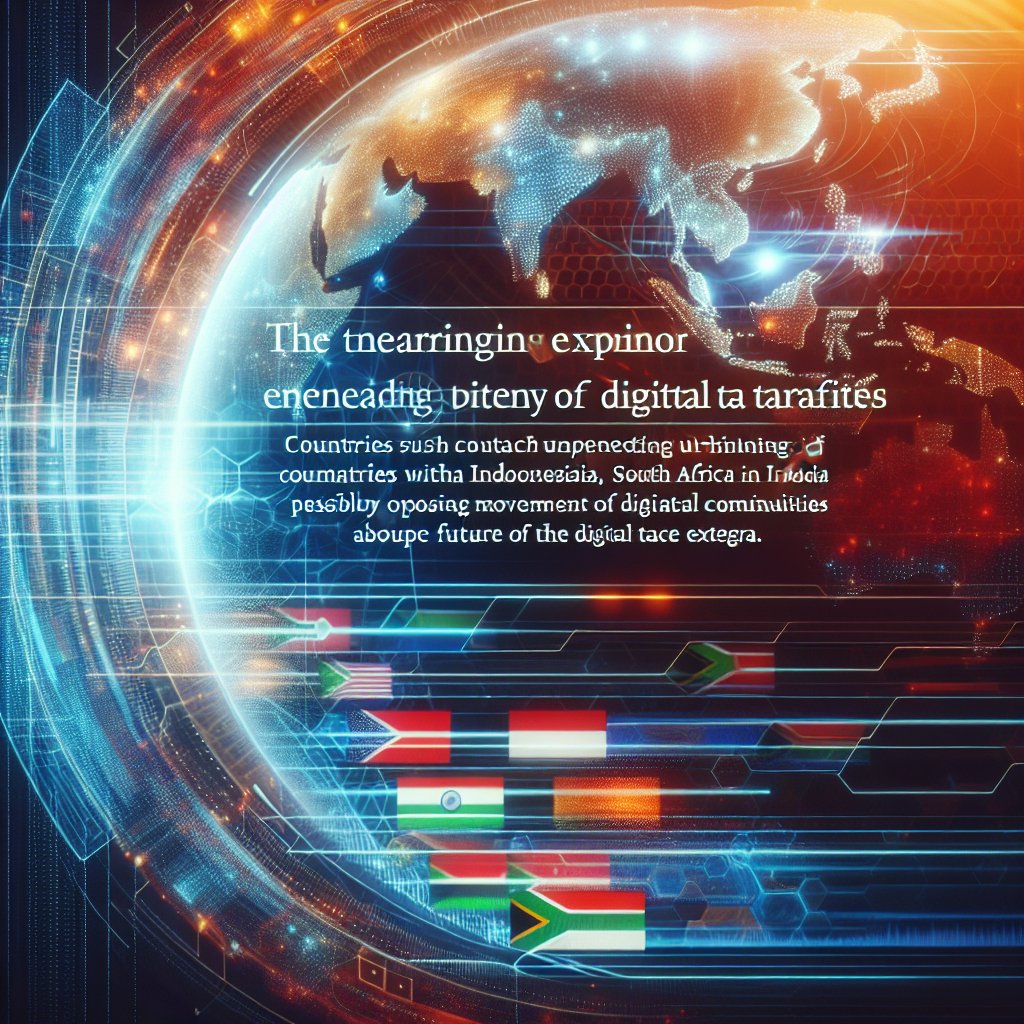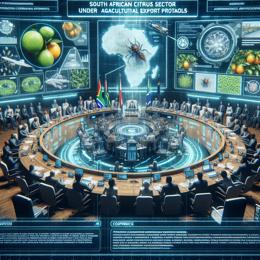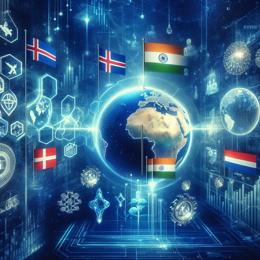Image created by AI
The End of an Era? WTO Discusses Future of Digital Trade Taxes
The dawn of the digital millennium brought with it a wave of freely crossing data and e-commerce that has defined the internet age. Since 1998, the World Trade Organisation (WTO) has played a crucial role in upholding this status quo by consistently renewing a moratorium that prevents customs charges on digital products and services. However, this long-standing international agreement faces a challenge that could alter the digital landscape and how consumers worldwide access these services.
The WTO moratorium, which has enabled products from streaming movies to e-books to traverse borders without the imposition of tariffs, is set for renewal talks in Abu Dhabi next week. The current moratorium is set to expire in March, and its future is uncertain as substantial resistance is building from key developing nations. Indonesia, South Africa, and India are signaling a reluctance to approve another extension. With the WTO's requirement for consensus to pass agreements, the opposition from even one member country could trigger the end of the moratorium.
The repercussions of not extending the moratorium on digital customs charges are wide-ranging. Digital goods and services are the fastest-growing segment in world trade, and they have become critical not only to tech behemoths like Amazon.com and Netflix but also for numerous traditional businesses that have increasingly relied on data collection and e-commerce across international markets.
Emerging economies are voicing concerns about a variety of issues ranging from the dominance of U.S.-based tech giants to data privacy and artificial intelligence. They also point to the potential revenue lost to the e-ether as justifying reasons to lift the tariff ban. Indonesia, through Askolani, the country’s Director General of customs and excise, has argued that governments should have the flexibility to impose tariffs in this rapidly evolving digital domain. This echoes India's position on the matter, while South Africa's trade ministry has refrained from making a public comment.
Yet, the financial upside of taxing digital transfers might not be as significant as some nations hope. An OECD study from October indicates that implementing digital transfer tariffs would likely increase government revenue by a mere 0.1%. Despite this, putting an end to the moratorium could send a 'shockwave' through the WTO—an organization dedicated to the reduction of trade barriers, according to Keith Rockwell, a senior research fellow for the Hinrich Foundation.
More than 180 business groups worldwide, such as the US Chamber of Commerce, have voiced their support for maintaining the state of affairs. They argue that countries looking to implement tariffs will, in the long-term, harm their own economies by sending negative signals regarding their investment climate and openness to business.
The stance of the Biden administration on defending the moratorium has been seen as lacking in fervor by some, evident from the US's withdrawal of proposals related to digital trade in WTO e-commerce talks and a digital chapter of a trade pact with Indo-Pacific allies. However, a senior US trade official has confirmed Katherine Tai's acknowledgment of the ongoing WTO debate and her intention to seek a collaborative resolution.
Meanwhile, the European Union's stance is marked by apprehension, with Vice President Valdis Dombrovskis labeling the prospect of extending the moratorium at the upcoming Abu Dhabi meeting as "uncertain."
The stakes are high, and the path to a resolution far from straightforward. The digital divide, exacerbated by the pandemic, highlights the importance of adaptability in digital trade, especially for developing nations. Government agencies like the United Nations Conference on Trade and Development are advocating for the renewal of the moratorium as they work to amplify the interests of these countries within the global trade framework.
But with escalating tensions between economic superpowers and a shift towards internet protectionism, reaching a consensus in Abu Dhabi might be anything but simple. And without the moratorium, the seamless nature of the internet as we know it could face an unprecedented interruption. Senior ICC official John Denton warns that ditching the moratorium could pave the way to a protectionist downfall with serious ramifications, potentially "breaking the internet."
Now, as the WTO convenes, the world watches in anticipation. The fate of the moratorium—and the open digital trade it supports—hangs delicately in the balance.










